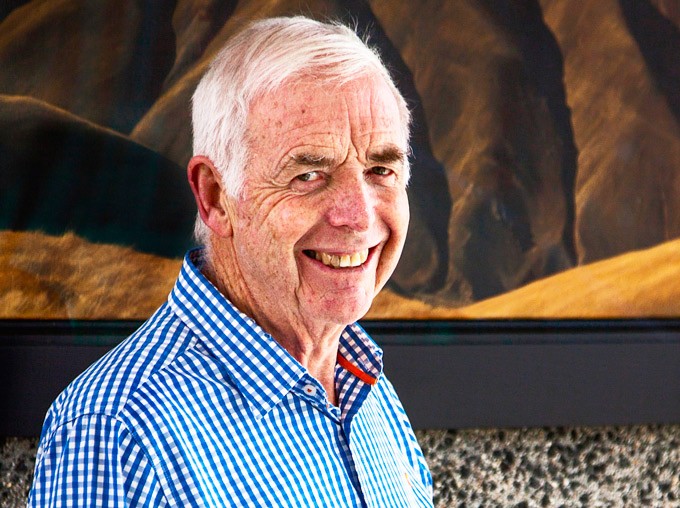BACKGROUND
EDGAR CENTRE / LION FOUNDATION ARENA*
*Now called the More FM Arena
Earlier Facilities
- 1992/93: Netball Otago were looking for one “home base” rather than the sometimes unpleasant Marlow Park and Memorial Courts. Otago Tennis shared Memorial courts with Netball Otago.
- Investigations into an indoor facility were undertaken with the potential location being a vacant wool store that could be converted into 18 sports courts replacing their outside courts.
- Eion and Jan Edgar were heavily involved in both sports and strongly supported the concept. They donated $500,000 to the project to allow the Dunedin City Council to purchase the building for $2.5m.
- Tennis and Netball committed to paying the annual rental of $150,000 to the DCC.
- The Council received a Hillary Commission Win/ Win Award as a result of proceeding with the project. The outdoor courts were used for other community activities and uses.
Edgar Sports Centre
- Tennis and Netball created an incorporated society to run the Centre and set about raising funds to create the basic facilities needed, in particular flooring and lighting.
- The Otago Community Trust also provided considerable assistance and the flooring and lighting were able to be completed quickly. The additional facilities, toilets, changing rooms etc were at that point very basic and inadequate.
- The Edgar Sports Centre was named after the Edgar family and opened to the public in Oct 1994.
Administration/Facility Block
- There was a considerable amount of public support for the project, a charitable fundraising trust was created to fund an administration and amenities block.
- That trust went to the public and quickly raised $2 million towards the project with the building completed in 1996.
- The Centre at that point was still used mainly for netball and tennis, but usage by numerous other codes was being promoted and continued to rise quickly.
Dunedin Stadium
- The original Dunedin Stadium in Victoria Road was primarily used by basketball but was in poor condition because of lack of funds for ongoing maintenance. The stadium was requiring increasing financial support from the Council.
- Otago Ice Sports which was operating in a small warehouse in Kaikorai Valley in Dunedin was also seeking a new and larger venue.
- As a result those involved in the various organisations together with the Council entered into an agreement whereby a new three court arena (the Lion Foundation Arena) would be added to the existing Edgar Centre. Basketball and the other sports (excluding indoor bowls) using the Dunedin Stadium agreed to relocate to the Edgar Centre and Ice Sports agreed to take over the Dunedin Stadium.
Lion Foundation Arena / Edgar Centre
- The City provided $6 million towards the cost of the new arena (the Lion Foundation Arena) and the Edgar Sports Centre Incorporated would raise the remaining $3 million or so required under the agreement (the Edgar Family donated a further $0.5m). The Arena was completed in Feb 2005.
- The addition of the Arena transformed the whole business operation of the Centre with the new Events Centre able to host a multitude of events, exhibitions and functions, along with community sport. The facilities name was changed to the Edgar Centre.
New Structure
- Following a lot of discussions the Centre was transferred into the governance of the Dunedin Indoor Sports Venues Trust Board (DISVTB). This structure was designed so that none the major users nor the Council could change the underlying balance and philosophy of the Centre.
- The Trust reflects the various parties’ historic contributions and on-going commitment to the Centre.
Governance (Trustees)
City Council Robin Bates (Chairman) Lawyer
City Council Bevan Meddings Building Management
City Council Carol Melville Otago Community Trust
Basketball Karl Andrews Company Director
Netball Colleen Lyons Education
Tennis John Alexander Financial Planner
Edgar Family Alan McKenzie Chartered Accountant
Sport Otago Nicola Wood Recreation
- The current Trustees have considerable business, accounting and legal experience and all Trustees are very aware of their obligations as Trustees as well as their obligations to their constituent bodies.
Philosophy
- The underlying philosophy of the Edgar Centre is that it is a mass usage covered sports ground, in essence the same as grounds provided by the city to other sporting codes in Dunedin, for example rugby, soccer, cricket.
- The Centre has never been nor could it be run on a commercial basis because recovery of all costs from users would simply result in the usage reducing as a significant proportion of the community would be unable or unwilling to use the facility. The DCC recognises this and the DISVT receives an annual funding grant from the community recreation fund, and in return meets the defined obligations and community needs of their Service Level Agreement.
- The Centre contributes significantly to the amenity value of the City as well as bringing significant economic benefits to the City through local, national and regional tournaments in numerous codes, and the hosting of large entertainment events.
Commitment from major users
- A key aspect of the operation and ongoing viability of the Centre is the local, regional and national commitment by the major sports not only to maximize use, but promote the facility as a venue for tournaments.
- While each sport recognises that hosting some shows or dinners, which result in competitions needing some rescheduling, are necessary for the Centre to meet its budget, the Centre management maintains this balance to the Centre’s users best interest.






